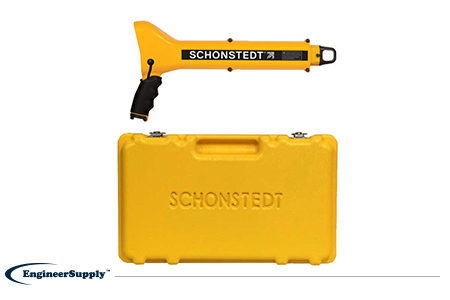What Is a Land Survey and Is It Worth the Cost?

Architects, engineers, and investors are just a few of the professionals who commonly need the services provided by a land surveyor. If you fall into one of these groups or if you’re seeking data for another reason, a land survey can provide in-depth details about the boundaries of a property. Land surveys are a valuable tool, but despite the benefits, you may not fully understand exactly what the process entails. Without an understanding of the process and the
survey tools that are used, it’s understandable to question whether the cost is worthwhile.
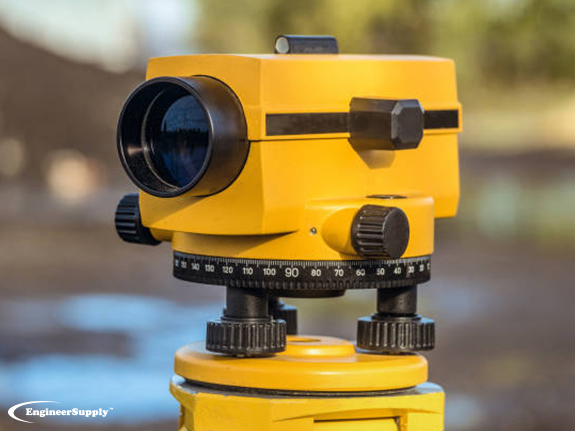
Understanding Land Surveys
A land survey is imperative any time you plan on altering the structures on your property. If you don’t have a clear understanding of the boundaries of the land, you might inadvertently surpass them and find yourself in a quagmire of legal trouble. The process itself is relatively simple — a professional surveyor will use state-of-the-art
survey equipment to measure the legal boundaries of your land. This determination will be made based on the legal description of the land that’s contained in your property deed.
The Cost of a Land Survey
A land survey conducted by a professional can cost several hundred dollars or more, depending on the size of your property and the type of
survey instruments that are required. You might be able to measure the boundaries of your own property with your own
survey tools, which prompts the question — is the cost of a professional a worthwhile investment? In most cases, the answer is yes. Keep in mind that a DIY land survey won’t be admissible in a legal dispute, and it may even be illegal to present your own survey as an official document. A professional who has the right
survey equipment at their disposal will be worth the cost.
Most Common Survey Tools
There are many different types of
survey tools that can be used for measuring property boundaries. Some of the most commonly used
survey equipment includes the following:
- Magnetic locators: These tools are used to help surveyors locate boundary markers, water lines, and monuments.
- Gammon reels: This type of retractable reel can be placed over a plumb bob to measure the distance from a specific point.
- Surveying tripod: A tripod is used to support survey instruments such as a laser level.
The tools used on a job site will depend on the complexity of the property and the span of the measurements to be taken. Professional equipment will ensure that the information captured is accurate.

Frequently Asked Questions
What types of land surveys are there?
There are several different types of land surveys that you can invest in, including a boundary survey — which is the most common, a topographic survey, a construction survey, and an accessibility survey.
Is there any benefit to conducting my own land survey?
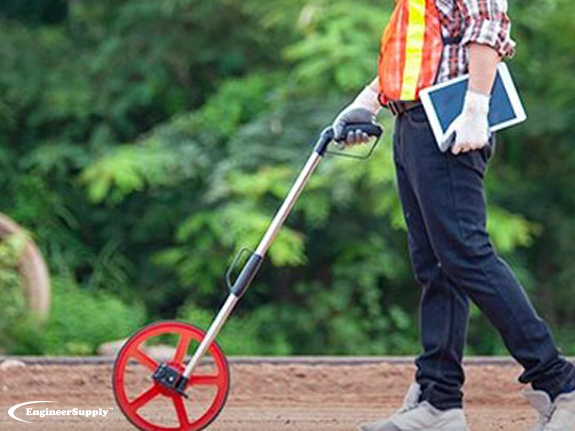
You could benefit from conducting an amateur land survey if you’re doing so for your own information. If you don’t plan to make any changes to your property and you simply want to get an approximation of its boundaries, you can certainly do so.
Why would I need a land survey?
Some of the most common reasons to invest in a professional land survey include settling a boundary dispute, confirming boundaries prior to buying real estate, or planning for an expansion.
What if my deed doesn’t contain a legal property description?
In some cases, you may possess a piece of land that does not contain a legal description of the property in its deed. This is rare, but it can happen. In this instance, the deed is not legally valid, and a survey of the property will be necessary to create a legal description.
If my property has been surveyed before, do I need a new survey?
Yes. Even if a piece of property has previously been surveyed, you should conduct a new survey in order to confirm prior findings. The new survey should also be filed with your jurisdiction’s Register of Deeds if you are planning to purchase the land in question.
Deciding Whether to Invest in a Land Survey
A land survey can provide unique insights into the boundaries of a property. This, in turn, can help you make informed decisions about building new structures or improving your land. Although you can conduct your own survey with the right equipment, it’s a good idea to enlist help from a professional surveyor so that the findings are legally valid. Amateurs and professionals alike can shop at Engineer Supply to find the best
survey instruments. Call (800) 591-8907 or
get a free quote for the tools you need.
Best Survey Equipment
Magnetic Locators
If you’re looking for lot lines in an urban or suburban area, there are likely already surveying stakes in the corners of every lot. It’s important to mark your own lines to verify accuracy, but a convenient place to start is with the existing surveying stakes.
A magnetic locator helps you find these stakes. Simply turn on the locator and work your way around the area where a stake is likely buried. These locators detect magnetic signals from buried metal items, so they’ll find a number of other items in addition to surveying stakes. Once you find a metallic object, dig it out to verify it’s a stake.
One of the most convenient, practical locators is the
Schonstedt GA-52Cx. This basic model is highly reliable, but doesn’t have all the programmable settings of other locators. Use it to find metallic objects with highly sensitive location technology and a rugged, weather-resistant control panel.
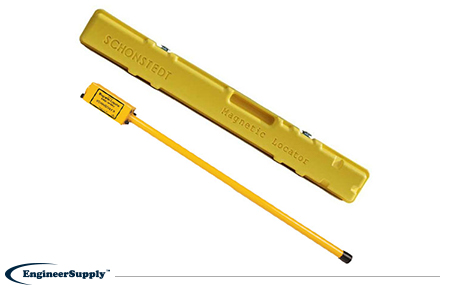
The
Pipehorn 800HL detector is one of the most versatile options for locating buried objects. This dual-frequency detector works as both a pipe and cable locator. Connect the transmitter to a buried line to follow an electric, water or gas line buried in the ground. Once you locate and flag these buried lines, switch modes to sweep for unmarked utilities with the tracer wire and tape.
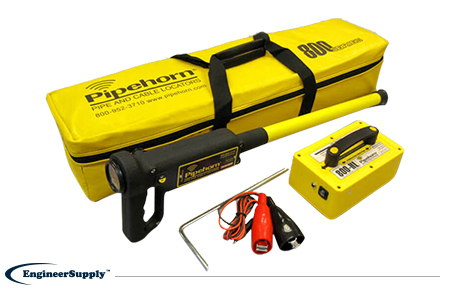
A more portable, high-tech Schonstedt magnetic locator option is the
GA-92XTd. This model uses a compact design and versatile control panel for both audio and visual indication. The small size doesn’t mean less power, so you can use this locator to find ferrous items buried up to 16 feet underground. Pack it away in the small, durable case to keep in your truck or toolbag wherever you work.
